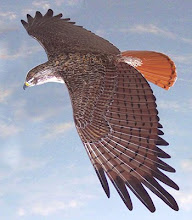7/12/1869
Johnny Cash: Big River
This morning, the new oars are finished, and we start once more. We pass several bad rapids, making a short portage at one, and before noon we come to a long, bad fall, where the channel is filled with rocks on the left, turning the waters to the right, where they pass under an overhanging rock. On examination, we determine to run it, keeping as close to the left-hand rocks as safety will permit, in order to avoid the overhanging cliff. The little boat runs over all right; another follows, but the men are not able to keep her near enough to the left bank, and she is carried away, by a swift chute, into great waves to the right, where she is tossed about, and Bradley is knocked over the side, but his foot catching under the seat, he is dragged along in the water, with his head down. Making great exertion, he seizes the gunwhale with his left hand, and can lift his head above water now and then. To us who are below, it seems impossible to keep the boat from going under the overhanging cliff; but Powell, for the moment, heedless of Bradley's mishap, pulls with all his power for half a dozen strokes, when the danger is past; then he seizes Bradley, and pulls him in. The men in the boat above, seeing this, land, and she is let down by lines.
Just here we emerge
from the Canyon of Desolation,
as we have named it,
into a more open country,
which extends for a distance
of nearly a mile,
when we enter another canyon,
cut through gray sandstone.
About three o'clock in the afternoon we meet with a new difficulty. The river fills the entire channel; the walls are vertical on either side from the water's edge, and a bad rapid is beset with rocks. We come to the head of it, and land on a rock in the stream; the little boat is let down to another rock below, the men of the larger boat holding to the line; the second boat is let down in the same way, and the line of the third boat is brought with them. Now, the third boat pushes out from the upper rock, and, as we have her line below, we pull in and catch her,
as she is sweeping by at the foot of the rock on which we stand.
Again the first boat is let downstream by the full length of her line, and the second boat is passed down by the first to the extent of her line, which is held by the men in the first boat; so she is two lines' length from where she started. then the third boat is let down past the second, and still down, nearly to the length of her line, so that she is fast to the second boat, and swinging down three lines' lengths, with the other two boats intervening. Held in this way, the men are able to push her into a cove, in the left wall, where she is made fast. But this leaves a man on the rock above, holding to the line of the little boat. When all is ready, he springs from the rock, clinging to the line with one hand, and swimming with the other, and we pull him in as he goes by.
As the two boats, thus loosened, drift down, the men in the cove pull us all in, as we come opposite; then we pass around to a point of rock below the cove, close to the wall, land, and make a short portage over the worst places in the rapid, and start again.
Grateful Dead: Big River...5/7/77
At night we camp on a sand beach;
the wind blows a hurricane;
the drifting sand almost blinds us;
and nowhere can we find shelter.
The wind continues to blow all night;
the sand sifts through our blankets,
and piles over us, until we are
covered as in a snowdrift.
We are glad when morning comes.
--John Wesley Powell
journal entry for July 12, 1869
The Exploration of the Colorado River and Its Canyons











<< Home